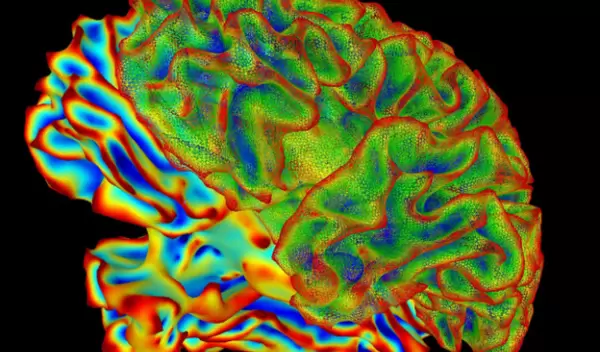
Could a computer diagnose Alzheimer's disease and dementia?
It takes a lot of time — and money — to diagnose Alzheimer's disease. After running lengthy in-person neuropsychological exams, clinicians must transcribe, review and analyze every response in detail.
Now, U.S. National Science Foundation-supported researchers at Boston University have developed a new tool that could automate the process and eventually allow it to move online. Their machine learning-powered computational model can detect cognitive impairment from audio recordings of neuropsychological tests — no in-person appointment needed. The findings were published in Alzheimer's & Dementia: The Journal of the Alzheimer's Association.
"This approach brings us one step closer to early intervention," says Ioannis Paschalidis, a co-author of the paper. He says faster and earlier detection of Alzheimer's could drive larger clinical trials that focus on individuals in early stages of the disease and potentially enable clinical interventions that slow cognitive decline. "It can form the basis of an online tool that could reach everyone and could increase the number of people who get screened early."
"It surprised us that speech flow or other audio features are not that critical; you can automatically transcribe interviews reasonably well and rely on text analysis through AI to assess cognitive impairment," says Paschalidis. Though the team still needs to validate its results against other sources of data, the findings suggest their tool could support clinicians in diagnosing cognitive impairment using audio recordings, including those from virtual or telehealth appointments.
Early diagnosis of dementia is not only important for patients and their caregivers to be able to create an effective plan for treatment and support, but it's also crucial for researchers working on therapies to slow and prevent Alzheimer's disease progression. "Our models can help clinicians assess patients in terms of their chances of cognitive decline," says Paschalidis, "and then best tailor resources to them by doing further testing on those that have a higher likelihood of dementia."
Added Wendy Nilsen, deputy director of NSF's Division of Information and Intelligent Systems, "Efficient early detection of cognitive decline not only helps people get help before their symptoms become debilitating, but finding change earlier also aids medical research in understanding the causes of Alzheimer’s Disease."
